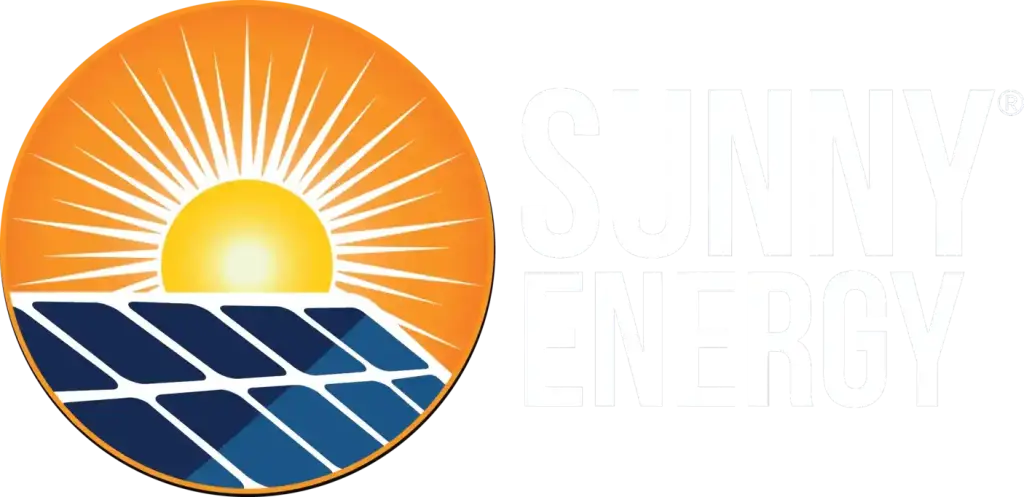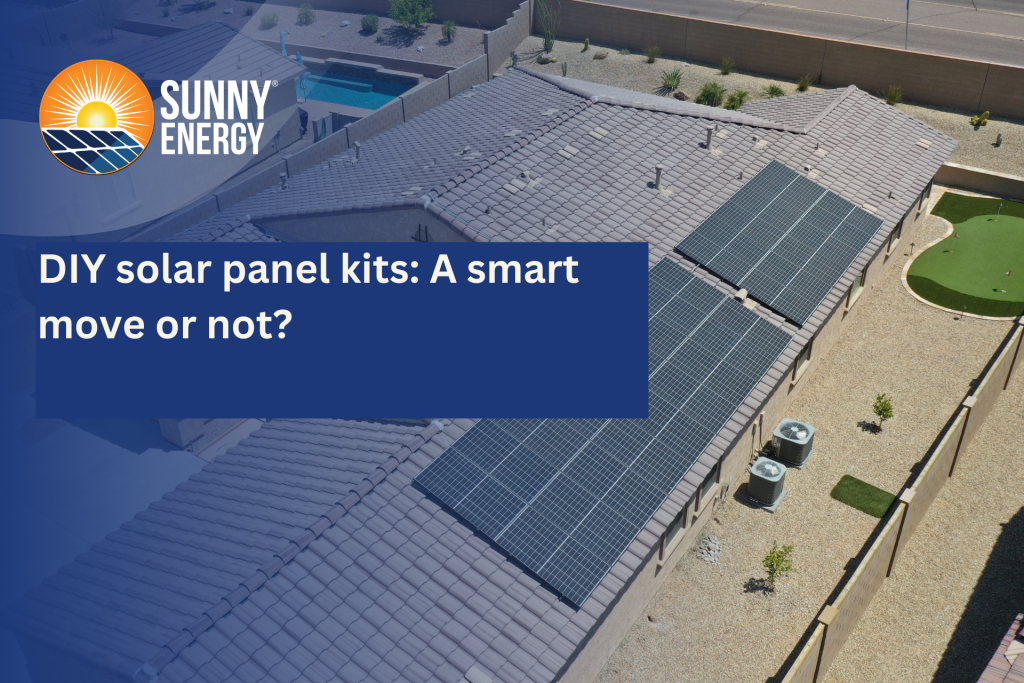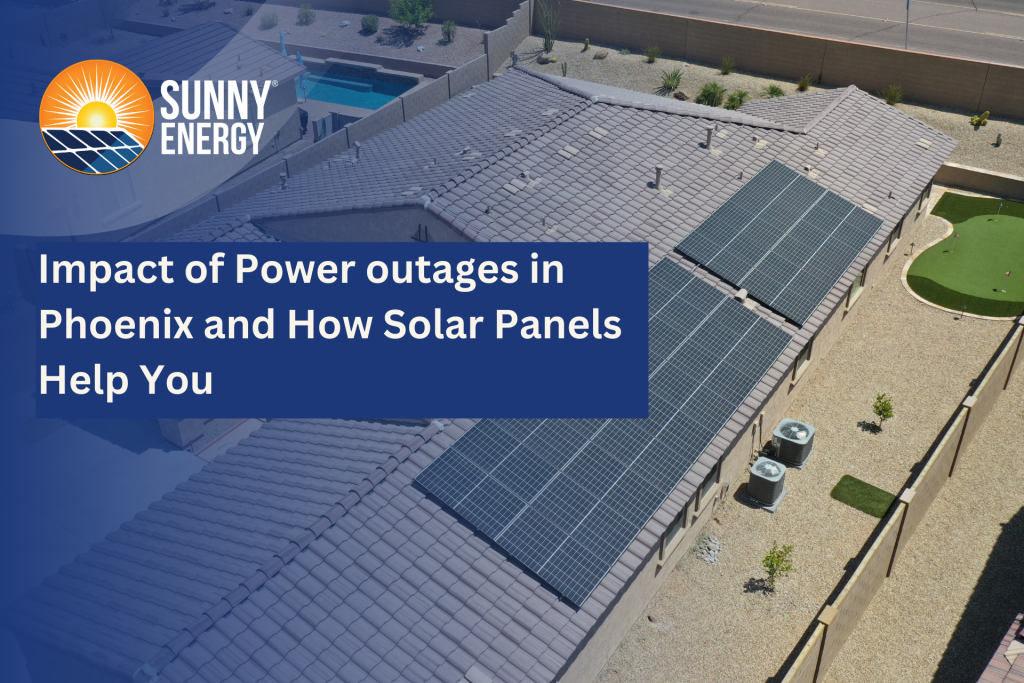Investing in solar energy has become more prominent than ever. With the increasing focus on sustainability and the rising costs of traditional energy sources, solar power presents a compelling alternative, and solar as an investment is considered as the best choice for homeowners. Not only does it offer a clean, renewable source of energy, but it can also provide long-term savings on electricity bills and increase the value of your property.
As technology advances and costs continue to decrease, solar energy is becoming increasingly accessible to homeowners and businesses alike. Arizona’s leading and most trusted solar company, Sunny Energy, is at the forefront of this movement, offering high-quality solar solutions that are affordable, reliable, and environmentally friendly. We are committed to making solar energy an investment with high ROI that is available to all.
In this blog, we will discuss the state of solar as an investment in 2024 and the importance of evaluating the financial viability of solar panels before installing them.
Solar as an investment in 2024
Solar energy continues to gain momentum as a mainstream energy source worldwide. Technological advancements, coupled with decreasing costs of solar panels, have made solar energy more accessible and cost-effective than ever before. This trend is reflected in the increasing number of residential, commercial, and utility-scale solar installations across the globe. Arizona continues to be a leader in solar energy, thanks to its abundant sunshine and growing resident and business interest. Here’s a glimpse into the state of solar power in Arizona for 2024 and how homeowners should seek solar as an :
1. Increased installations:
More Arizona homeowners are embracing solar, driven by environmental benefits, lower electricity bills, and attractive federal incentives like the 30% tax credit under the Inflation Reduction Act.
2. Solar in new homes:
Many new Arizona homes now come equipped with solar panels as a standard feature, reflecting consumer demand for energy efficiency and policies promoting renewable energy integration in construction.
3. Efficiency boost:
Newer solar panels are more efficient, generating more electricity even on less sunny days. These high-tech panels are also sleeker and more aesthetically pleasing.
4. Storage on the rise:
Interest in solar battery storage systems is growing. These batteries allow homeowners to store excess solar energy for later use, increasing energy independence and providing backup power during outages.
5. Federal boost:
The Inflation Reduction Act provides a significant 30% tax credit for residential solar installations, making them more affordable.
Solar energy as an investment: benefits in 2024
Investing in solar energy offers a myriad of benefits, making it an attractive option for homeowners and businesses alike. Some key advantages include:
1. Lower utility bills:
One of the most immediate benefits of installing solar panels is the reduction in electricity bills. By generating your own electricity from the sun, you can significantly lower your dependence on the grid and save money on energy costs.
2. Energy security in times of crisis:
Solar energy provides a reliable source of electricity, especially during natural disasters or grid outages. With a solar power system and battery storage, you can ensure that your home or business remains powered even when the grid is down.
3. Increased property value:
Properties equipped with solar panels typically have higher resale values. Studies have shown that solar installations can increase property values by up to 4%, making them a valuable investment for homeowners.
4. Environmental responsibility:
Solar energy is a clean and renewable energy source that produces no greenhouse gas emissions or air pollutants. By investing in solar, you can reduce your carbon footprint and contribute to a more sustainable future.
5. Future-proofing with renewable energy:
With growing concerns about climate change and the finite nature of fossil fuels, investing in solar energy is a smart way to future-proof your home or business. Solar energy is sustainable and abundant, ensuring a reliable source of energy for years to come.
Solar investments and ROI
Just as you invest in stocks, investing in solar panels can be a smart financial move. To determine the cost of your solar investment, you need to calculate the total expenses involved in installing and maintaining your solar panels over their 25-30 year lifespan. This includes the cost of the panels, labor, inspection, permits, and any maintenance costs, minus any rebates and tax breaks you receive.
Cost of investment = Total expenses (system cost, installation, permits, maintenance) – Value of incentives and rebates
Once you have an idea of how much you’re investing, you can estimate the return on your investment (ROI) by considering the money you’ll save on electricity over the lifespan of your system. Over the next few decades, as the cost of living, including electricity, rises, your electric bill will also increase. Solar panels can help you avoid these rising costs, leading to significant savings. On average, it takes about 8.8 years to recoup the cost of your system, after which your panels will start saving you money.
Calculating your solar system’s ROI:
Let’s assume you use approximately 900 kWh of electricity per month, with an average monthly bill of around $150. To offset most of your electricity needs, you would need an 8 kW system. If the cost per watt in your area is $2.76, purchasing the system upfront would cost you $16,339 ($22,080 before applying the 26% tax credit).
While solar panels typically last over 30 years, most manufacturers offer a 25-year warranty. To calculate your ROI, you need to consider the percentage of electricity your system covers, the degradation rate covered by your warranty, and the inflation rate of electricity in your area. For this example, let’s assume:
- Your system covers 96% of your electricity consumption.
- Your panels are warrantied for 25 years, with a degradation rate of 2% after year one and 0.5% thereafter.
- The electricity inflation rate is 2.2%.
Based on these assumptions, by year 25, your solar system will still cover about 82% of your electricity needs. Without solar, your monthly electricity bill would be approximately $253, a 69% increase from your current bill. Overall, by year 25, you would have saved around $55,767 in avoided electricity costs. So, by investing $16,339 in your system, you would save $55,767 over its warranty period, resulting in an ROI of 241.31% over 25 years!
Comparing solar ROI to other investments:
Solar is a long-term investment, and its average annual ROI over the 25-year warranty period can be compared to returns on other investments. For instance, an ROI of 7% (accounting for inflation) is considered good for investments like the S&P 500, which includes companies such as Microsoft, Amazon, and Johnson & Johnson.
However, stocks can be risky, with higher potential returns but also greater volatility. Bonds and CDs are low-risk investments, similar to solar, but offer lower returns over time.
To summarize, while stocks may offer greater potential returns over the 30-year lifetime of a solar system, they also come with greater risks due to market volatility. On the other hand, solar provides significant savings on your electric bill and protection against inflation, making it a reliable long-term investment choice.
Evaluating the financial viability before installing solar panels
Before investing in solar panels, it’s essential to evaluate the financial viability of the project. Consider the following factors when choosing solar as an investment for your home:
1. Upfront costs for installing solar panels:
The upfront costs of purchasing and installing solar panels can vary depending on several factors, including the size of the system, the quality of the panels, and the complexity of the installation. Generally, the initial investment can be significant, often ranging from several thousand to tens of thousands of dollars. However, it’s important to consider the long-term savings on energy bills that solar panels can provide. By generating your own electricity, you can reduce or even eliminate your monthly electricity costs, ultimately offsetting the initial investment over time. Additionally, there are potential incentives, such as tax credits and rebates, that can further reduce the upfront costs and improve the financial feasibility of installing solar panels making it solar as an investment a viable option.
2. Financing alternatives:
Many homeowners choose to finance their solar installations through loans. Solar loans are specifically designed for financing solar projects and often have lower interest rates than traditional loans. These loans can be paid off over time, typically ranging from 5 to 20 years, making solar more affordable for many households. By spreading the cost of the solar installation over several years, homeowners can enjoy the benefits of solar energy without having to pay a large upfront sum.
3. Solar Power Purchase Agreements (PPA):
A solar Power Purchase Agreement (PPA) is another financing option for solar installations. With a PPA, homeowners can purchase solar energy from a third-party provider at a fixed rate. This eliminates the need for upfront costs, as the provider owns and maintains the solar panels. While the homeowner may not own the solar panels outright, they can still benefit from lower electricity bills and potentially save money compared to purchasing electricity from the grid.
4. Operation and maintenance expenses:
While solar panels are known for their low maintenance requirements, it’s important to factor in any potential maintenance costs over the life of the system. This can include cleaning the panels periodically to ensure maximum efficiency and potentially replacing inverters or other components as needed. While these costs are typically minimal compared to the overall savings from solar energy, they should still be considered when evaluating the financial viability of a solar installation.
5. Government incentives:
Federal and state governments often offer incentives to encourage the adoption of solar energy. One of the most significant incentives is the federal solar investment tax credit (ITC), which allows homeowners to deduct a percentage of the cost of their solar installation from their federal taxes. Additionally, many states offer rebates or other incentives to further reduce the upfront costs of installing solar panels. These incentives can significantly improve the financial feasibility of solar energy and should be taken into account when evaluating the costs and benefits of a solar installation.
6. Tax implications:
Installing solar panels can have tax implications, both positive and negative. On the positive side, homeowners may be eligible for the federal solar investment tax credit, which can offset a portion of the cost of their solar installation. However, it’s important to consult with a tax professional to understand the specific tax benefits and implications of installing solar panels in your area, as tax laws can vary widely.
7. Estimated life of solar panels:
Solar panels are designed to last for 25 years or more, with many manufacturers offering warranties of 25 years or more. When evaluating the financial viability of a solar installation, it’s important to consider the longevity of the panels and the potential savings over their lifespan. While the upfront costs of solar panels can be significant, their long lifespan means that they can provide substantial savings on energy bills over time.
8. Risks and uncertainties:
While solar energy is generally considered a safe investment, there are risks and uncertainties to consider. One of the main risks is changes in government policies and regulations that could affect the economics of solar energy. For example, changes to the federal solar investment tax credit or state incentives could impact the financial feasibility of installing solar panels. Additionally, there may be uncertainties related to the performance of the solar panels over time, although most panels come with warranties to protect against defects and performance issues. Still solar as an investment is a sustainable and environment friendly option.
Final words
Solar energy presents a compelling solar as an investment opportunity in 2024, offering a range of benefits, including lower utility bills, energy security, increased property value, environmental responsibility, and future-proofing with renewable energy. Arizona, with its abundant sunshine, is well-positioned to harness the power of solar energy and lead the way in renewable energy adoption. However, it’s essential to carefully evaluate the financial viability of installing solar panels and consider factors such as upfront costs, financing alternatives, incentives, and risks before making a decision. By choosing solar as an investment, homeowners can not only save money but also contribute to a more sustainable and environmentally friendly future.
If you are looking to invest in solar panels, Sunny Energy is the best solar company in Arizona, who can help guide you through the process and maximize the financial benefits of solar energy. With years of experience in the solar industry, an Arizona solar company, Sunny Energy offers expert advice and personalized solutions tailored to your specific needs and budget considering solar as an investment and a best solution for your home.
Arizona solar contractors, Sunny Energy can assist you in evaluating the financial viability of installing solar panels by providing transparent pricing, financing options, and a detailed analysis of your potential savings. Their team of professionals will work with you to design a custom solar system that meets your energy needs and maximizes your return on investment.
Additionally, as an Arizona solar company, Sunny Energy can help you navigate government incentives, such as the federal solar investment tax credit and state rebates, to further reduce the upfront costs of installing solar panels. They can also provide information on the estimated life of solar panels and any potential maintenance costs, ensuring that you have a clear understanding of the long-term benefits of solar as an investment.
With Sunny Energy’s expertise and commitment to customer satisfaction, you can feel confident that you are making the right choice by opting solar as an investment for your home. Contact us today to learn more about how solar panels can benefit you financially and environmentally.




